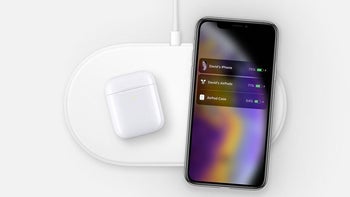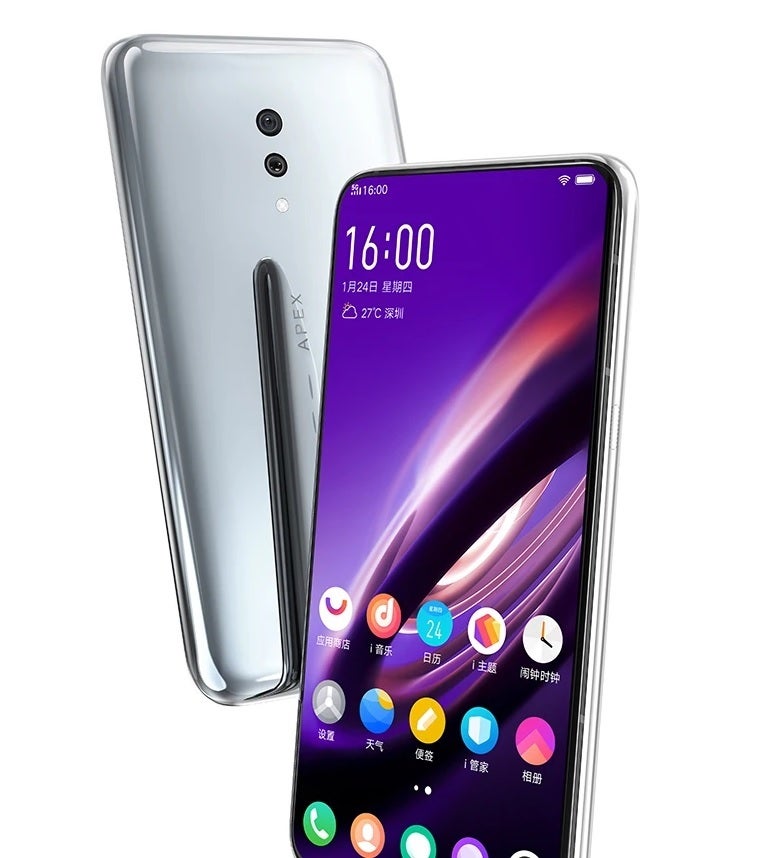Apple might be working on a new multi-device charger

In March of 2019, 562 days after being unveiled by Apple, the company took its AirPower wireless charging pad out to the back lot in Cupertino, and put a bullet through its head. Since that execution, which resulted from poor execution on Apple's part, rumors have bubbled up about another attempt by Apple to develop a wireless charging pad that can charge multiple Apple products simultaneously.
AirPower might have been too ambitious for Apple to build
In March 2020, tipster Jon Prosser said that Apple engineers were building prototypes of the charging accessory while trying to re-engineer the coils inside the pad to handle the heat generated by the product. But seven months later, a tweet from Prosser said that all AirPower prototyping and testing had been deleted from Apple's schedule for 2021. He added that his sources told him that they doubted that Apple would ever take up the project again.

The portless Vivo Apex 2019 prototype
The main issue with AirPower was one of ambition on Apple's part. It hoped to be able to charge up multiple devices without requiring that they be placed in a certain location on the pad to match the charging coil on a device with one in the pad. Apple had hoped to use overlapping coils to achieve this, but too often in testing, overheating ensued.
But Bloomberg's Mark Gurman, in his weekly "Power On" newsletter, says that he believes Apple is working on new short and long-distance wireless charging devices. He adds that Apple is working toward a future where its major devices will be able to charge each other. Some Android devices offer wireless reverse charging which allows, for example, a Pixel 6 or Galaxy S21 Ultra user to flip the phone on its back and use the rear panel as a wireless charging pad to share some of its battery life with a compatible device.
Gurman says that there are only two possible outcomes to Apple's tinkering. One would be a move from the Lightning port to USB-C which many iPhone users have been clamoring for. The other possibility would be for Apple to eliminate the charging port in favor of wireless charging. Apple has already done this with the Apple Watch. The Bloomberg scribe writes, "I believe Apple eventually wants its iPhones to drop the plugs and go all-in on MagSafe."
A portless iPhone has been rumored in the past and would require some type of diagnostic wireless system to help with repairs. Apple recently came up with such a system for the Apple Watch Series 7. Apple reportedly is working on a way to recover and restore lost data on a portless phone that might require the tech giant to come up with a way to transfer data using MagSafe.
This past July, one report said that Apple was testing a feature for the iPhone called "Internet Recovery." Another possibility that Apple has supposedly been developing is one that uses Bluetooth. However, this was considered slower, unreliable, and insecure. It would also require the iPhone user to sync to Bluetooth signal using a PC or Mac.
Oppo is rumored to be working on a portless phone that will have wired charging capabilities
One of our readers suggested the use of pins like those used on the smart connector system for iPads. Another wondered whether the use of NFC was possible considering the financial data those signals can carry.
Last month, my colleague Rado Minkov explained why we need a portless iPhone 14 series. Since the industry has been known to copy Apple when it comes to some major changes (many phones no longer ship with chargers is one example), eliminating cables should lead to faster wireless charging. And who likes the idea of having to travel with cables that are always getting knotted up?
Some of the best hardware innovations in the business are coming out of China, and last April we passed along a report that claimed Oppo is working on a portless phone that will use
a "special structural design" to allow for wired charging. And in 2019, the prototype Vivo Apex had a portless design. Some of the features of that prototype, such as an in-display fingerprint scanner, are now reality so there is no reason to think that the portless design won't be either.










Things that are NOT allowed: